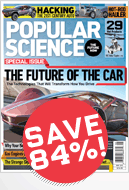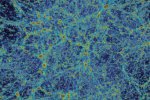
There's a major problem in health journalism: It's wildly unreliable. As David H. Freedman points out in an excellent critique in the January/ February issue of Columbia Journalism Review, the rate of "overall wrongness" in top medical journals is as much as two thirds--something even the most seasoned science reporters don't point out. The resulting information conveyed to lay readers, is, at best, confusing and, at worst, dead wrong.
But one of those articles has to be the "right" article, doesn't it? One of them has to have the best information. Well, sure, but good luck trying to suss out which one it is in your newspaper or blog of choice when it's not even remotely clear in the medical journals.
And that's only part of the problem, Freedman argues. Science journalists can report flawlessly on a study, painting an accurate picture with multiple, credentialed sources, and still end up transmitting to readers an incomplete message--maybe even a flat-out wrong message--by not letting them in on a fundamental fact: that there is no one tidy answer.
With so much wrong information, scientists and journalists pick whichever wrong study helps them the most, Freedman says. Scientists want their studies to be published and picked up by the media, while journalists want a story that's clear and digestible. But science is messy, and a clear, digestible finding is often (to borrow from another kind of reporting that Freedman mentions) saying about as much as a politician at a press conference.
So there's the upshot: pull a personal health study out of a hat, and it's more likely than not to have major problems. But journalists aren't picking random studies--they're picking the clearest, most engaging, and thus the worst, studies. The system is broken, and this is Freedman's explanation on how to fix it:
A tall order, maybe, but good advice for readers: stay skeptical, and reconsider any life-changing decisions you're making based on studies, whether you read them in a respected journal or a newspaper or, sure, here at Popular Science.
But one last note on all of this. Freedman readily cites where he got his information on the wrongness of studies. He got it from studies. Even if health journalists and readers become more skeptical, there's an old piece of wisdom you can check out the published science on: change is hard.
7 Comments

Popular Tags
Science
140 years of Popular Science at your fingertips.
Innovation Challenges
Popular Science+ For iPad
Each issue has been completely reimagined for your iPad. See our amazing new vision for magazines that goes far beyond the printed page
Download Our App
Stay up to date on the latest news of the future of science and technology from your iPhone or Android phone with full articles, images and offline viewing
Follow Us On Twitter
Featuring every article from the magazine and website, plus links from around the Web. Also see our PopSci DIY feed
February 2013: How To Build A Hero
Engineers are racing to build robots that can take the place of rescuers. That story, plus a city that storms can't break and how having fun could lead to breakthrough science.
Also! A leech detective, the solution to America's train-crash problems, the world's fastest baby carriage, and more.

Popular on Popsci
Most Commented
Science
- Scientists Send A Cloud Of Atoms Plunging Below Absolute Zero
- Politics Is Most Important Factor For Climate Future, Study Finds
- 2013 Prediction: Physics Enters A New Era
- Equal Rights For Women Everywhere Could Save Civilization
- 21 Emotions For Which There Are No English Words [Infographic]
- Important Science Of The Season: Hot Chocolate Tastes Better In An Orange Cup
- Whoever Kills The Most Burmese Pythons In Florida Wins A Cash Prize
- New $120 Million Department Of Energy Center Will Tackle Rare Earths Shortage
- Earth Bacteria Can Survive And Grow In Extremely Hostile, Mars-Like Conditions
- The White House Gloriously Shoots Down Petition To Build A Death Star
Most Emailed
Science
- DNA Test Finds Horse Meat In UK Hamburgers
- This Is What Competing Sperm Looks Like
- Curiosity Rover Gets Ready To Drill Into Mars For The First Time
- Watch These Liquid Metal 'Marbles' Go Splat And Un-Splat
- Russia Will Launch Its First Moon Mission Since The 1970s
- Fake Snow Made From Sewage Comes Out Yellow
- Trial Run Mission Will Make Sure Asteroid Deflection Method Really Works
- Watch A Virus Infect An E. Coli Cell
- Particle Accelerator Reveals That First Land Animals Walked Like Seals
- Equal Rights For Women Everywhere Could Save Civilization
Most Viewed
Science
- DNA Test Finds Horse Meat In UK Hamburgers
- This Is What Competing Sperm Looks Like
- Curiosity Rover Gets Ready To Drill Into Mars For The First Time
- Watch These Liquid Metal 'Marbles' Go Splat And Un-Splat
- Russia Will Launch Its First Moon Mission Since The 1970s
- Fake Snow Made From Sewage Comes Out Yellow
- Trial Run Mission Will Make Sure Asteroid Deflection Method Really Works
- Watch A Virus Infect An E. Coli Cell
- Particle Accelerator Reveals That First Land Animals Walked Like Seals
- Equal Rights For Women Everywhere Could Save Civilization

Online Content Director: Suzanne LaBarre | Email
Senior Editor: Paul Adams | Email
Associate Editor: Dan Nosowitz | Email
Contributing Writers:
Clay Dillow | Email
Rebecca Boyle | Email
Colin Lecher | Email
Emily Elert | Email
Intern:
Shaunacy Ferro | Email

























Sensationalism sells, duh!
Robot is right, sensationalism sells. Then there are the studies funded by organizations with a special interest in the outcome. Long ago the margarine industry funded studies to show that butter was bad for you. Guess what? Margarine sales went up.
You should take health news with a grain of salt...except too much salt is bad for you...or is it?
http://www.scientificamerican.com/article.cfm?id=what-science-on-hypertension-really-shows
Bottom line, people who have high blood pressure and are salt-sensitive need to monitor their salt intake. The rest of us can relax. The Internet is a great resource for myth-busting.
in order to thank everyone, characteristic, novel style, varieties, low price and good quality, and the low sale price. Thank everyone
http://gg.gg/11qu
http://gg.gg/11qu
http://gg.gg/11qu
│\_╭╭╭╭╭_/│
│ │\|/
│ ● ● │—☆—
│○ ╰┬┬┬╯ ○│/|\
│ ╰—╯ /
╰—┬○————┬○╯
╭│ │╮
╰┴—————┴╯
asfghjty
upto I saw the check saying $6619, I be certain ...that...my mother in law was like they say actualy bringing in money in there spare time at there labtop.. there moms best frend has been doing this 4 only about eleven months and resently took care of the dept on there home and bourt a new Lexus LS400. go to, http://www.bit90.com
8th grade science teachers tell us that we know almost all there is to know about biology and we're only probing the edges. The truth is that 75% of what we 'know' about biology of higher order life is conjecture.
One proof of this is the fact that prescription drugs have side effects. The drugs 'work' because we have a rudimentary understanding of the system that they are supposed to affect. They fail to work perfectly for the same reason. We are in the 'try it and see what happens' stage.
Not to mention the other white elephant in the room - genetics. Something that works great for one person will have no effect on another due to genetic differences. Certain medicines need to be taken in more copious volumes for some rather then others due to differences in receptor counts etc. An obvious though non medical example is caffiene or stimulants. People have vastly different reactions to them, and not just from constant in take levels... or alcohol - different levels of the enzyme that helps digest it. Metabolic functions greatly effect medicine outcome.